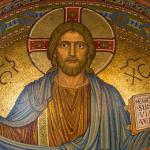The Apostle Thomas is someone who brings up mixed emotions among Christians. There are even non-believers who have heard of him. Thomas was not among the other disciples when Christ appeared to them , and as a result Thomas said that unless he puts his fingers into his side he will not believe (Radmacher, page 762). This one statement would define Thomas for all of history, and give him the moniker of “Doubting Thomas.”
Apostle Thomas In Scripture
Is there more to Thomas then this moniker of distinction? There is very little written about him. In fact throughout the whole of scripture only twelve verses specifically mention him (1) Matt. 10:3; 2) Mark 3:18; 3) Luke 6:15; 4) John 11:16; 5) John 14:5 6) John 20:24; 7) John 20:26; 8) John 20:27; 9) John 20:28; 10) John 20:29 11) John 21:2 12) Acts 1:13) (Baker, 1101). There are many of these verses that capture the essence of the Apostle’s character. We learn about his great faith and leadership, what a disciple is, and how to fulfill that calling just as Thomas did.

We have already determined that Thomas was an Apostle of the Lord. It is interesting that we never see Thomas mentioned in scripture outside of the group of disciples. Matthew 10:2-4 reads, “The names of the twelve apostles are these: first, Simon, who is called Peter, and Andrew his brother, James the son of Zebedee, and John his brother, Philip and Bartholomew, Thomas and Matthew the tax collector, James the son of Alphaeus, and Thaddaeus; Simon the Cananaean, and Judas Iscariot, who betrayed him.” John 21:2 reads, “Simon Peter, Thomas (called the Twin), Nathanael of Cana in Galilee, the sons of Zebedee, and two others of his disciples were together.” What differences do you see between the two verses?
Importance Of The Apostle Thomas
There is a couple interesting things about these two passages. Matthew gives a listing of the twelve disciples while John does not. In regards to the Gospel of John and the others it is important to mention the order of the names being presented. Matthew has Thomas listed seventh among the twelve; while John has Thomas listed after Peter every time there is a listing of disciples.
It was not uncommon during that time to list people in order of importance. Matthew had virtually no part in the Gospel narrative of Matthew. In John’s Gospel, Thomas is listed right after Peter, and Thomas plays a pivotal role in John’s narrative. Peter is considered by us Roman Catholics to be the first Pope; so it may seem that Thomas was more important than we are led to believe.
The Gospel of John is also the only Gospel to refer to Thomas as “Dydymus.” Out of the eight references to Thomas John refers him four times as “Dydymus.” This term is actually what the name of Thomas is in Greek. The term actually means “the Twin.” Some scholars suggest that ‘Dydymus” is the legitimate name of Thomas though there is little evidence to support this theory (Comway, 413).
As stated before very little is known about Thomas. Seven of the twelve disciples were fishermen, and Thomas may have been among them when Jesus told them to follow him as read in Mark 1:16-20. When or where Thomas was called to be a disciple is not made clear in any of the four Gospels. In fact it almost seems like he appears out of nowhere as part of the twelve, but whatever the reason was for Thomas to be made a disciple his role is understated. What kind of disciple was he? What is a disciple? Was he the type of person that did his job and stayed out of the limelight?
In its most basic definition a disciple is someone who follows the Lord, and does his or her best to follow God’s will for their life. If we have proclaimed Christ as Lord then we are counted among the disciples, or followers. In fact, scripture now has given us the term of a “priesthood of believers.” Yes we are all disciples, but do we need to do the will of the Father to be a good disciple? To this question I answer with a resounding YES! Christ himself said “those that do the will of my Father are my brothers and sisters.”
A Great Disciple
In the case of Thomas maybe he was a very good disciple, and only had one incident, and that is when he doubted the resurrection of Christ. The Gospel of John gives a great outlook on the leadership of Thomas that is often overlooked.

The scripture passage that most shows his leadership is John 11:16. The English Standard Version says “Thomas, called the Twin, said to his fellow disciples ‘Let us also go, that we may die with him.” The New Living Translation is straight to the point and says, “Thomas, nicknamed the Twin, said to his fellow disciples, ‘Let’s go, too-and die with Jesus’. The background to this passage is found in John chapter 10 when Jesus and the disciples are attending the annual Feast of Dedication, which is also known as Hanukkah. In John 10:24 the Pharisees confront Jesus and demand that He tell them if he is or is not the Messiah. In John 10:30 Christ responds with, “I and the Father are one.”
This simple yet profound statement by Christ answered the Pharisees demands, but were they happy? They demanded to know if he was the Messiah. Christ answered them by saying that He and God are the same. The Pharisees started accusing Christ of blasphemy and wanted to stone Jesus. John 10:31-33 says, “The Jews picked up stones again to stone him. Jesus answered them, ‘I have shown you many good works from the Father; for which of them are you going to stone me’? The Jews answered him, ‘It is not for a good work that we are going to stone you but for blasphemy, because you, being a man, make yourself God.”
As stated previously Jesus escaped the stoning situation, and He and the twelve find refuge outside of Jerusalem. Around this time word comes to Jesus that his friend Lazarus has died. We find this passage in John 11:1-15. Jesus wanted to return to Bethany that he may pay His respects to Lazarus. Upon hearing the disciples tried to talk Jesus out of returning to Bethany. John 11:8 states, “The disciples said to him, ‘Rabbi, the Jews were just now seeking to stone you, and you are going there again’?” The disciples were terrified to return to Bethany (Radmacher, page 764). After all the Jewish leaders just tried to murder their leader for the charge of blasphemy. There is little doubt that they feared for their lives as well. After all they might very well have been executed as heretics for believing that Christ was the son of God. Here stood Christ who wanted to go pay homage to his friend Lazarus. He wanted to go comfort the relatives, and continue his mission on earth, but the disciples were discouraging him from doing so. That is all except one disciple.
The Bravery Of The Apostle Thomas
John 11:16, “So Thomas, called the Twin, said to his fellow disciples, ‘Let us go, that we may die with him’.” The New Living Translation says it a little differently. It says “Thomas, nicknamed the Twin, said to his fellow disciples, ‘Let’s go, too-and die with Jesus’.” While the other disciples are grumbling among themselves and telling the Lord not to do something Thomas steps up to the plate. He says if Christ is going to die let’s support him, go with him, and if we die so be it. Thomas was a leader among the disciples that saw the overall picture of Christ’s mission and wanted to do everything he can to lend his support.
This is the kind of leadership that Jesus was looking for in his disciples (Comay, 418). Though the Lord was human he knew what each of their futures held. He knew that eleven of the twelve would suffer martyrdom, but Thomas was the first to speak up for Christ and show his true leadership and courage. This leadership and courage would lead him to ministry in India where he would suffer martyrdom by having a spear thrust into his chest (Comay, page 418).
Are We Following The Example Of The Apostle Thomas?
Are we willing to be like Thomas? If we look back on our lives we will see plenty of times where we were like the other disciples. It may be denying that we go to church so our friends will not think we are strange. It may be standing up for someone who is wrongly accusing another. There is no limit to the ways that we discourage the Holy Spirit from being manifest in our lives.
Through all of this there is hope. No matter how many times we hide. No matter how many times we say we do not know. No matter how many times we sin we can read this story about Thomas. Thomas was in the company of disciples such as Peter, Andrew, and Matthew. These great men who history has adorned with many accolades, and Thomas steps up at the most opportune time. His willingness to go when no one else wanted to say that he would go if the Lord was going. He was going to be there to support Christ in any way he could even if it meant giving his own life in the process.
Are we willing to give this sacrifice? If we are passionate about getting souls into heaven then we should be. There is a person in your office that is hurting, there is a person in your neighborhood doing drugs to escape some sort of pain, and we have the answer. The sisters of Lazarus were greatly grieved when their brother died. Jesus not only wanted to go to see Lazarus, but to comfort and empathize with the family. What if no one stepped up to say “lord I will go with you.” Are you willing to show leadership and courage to go where the Lord wants you to go? Are you willing to admit that you are a follower of Christ? Are you willing to let your life reflect that commitment? Are you willing to share the love of Christ with those that are hurting? If not you are being like the other disciples, and not being like Thomas. Thomas has a bad reputation for not initially believing the resurrection, but he showed leadership and commitment far before the other eleven disciples did. He showed discernment and did not want to be lead astray by false teaching.
Works Cited
Baker, Walter L., Zuck Roy B., Blaising, Craig A., Volume 2 of The Bible Knowledge Commentary: An Exposition of the Scriptures, Dallas Theological Seminary, 1985
Comay, Joan, Brownrigg, Ronald, Who’s Who IN The Bible?, 1993
Radmacher, Earl, Allen Ron, &House, Wayne H., Compact Bible Commentary, Thomas Nelson Inc., 2004
















